The project marked a pivotal step towards transforming agricultural insurance in Ghana. By addressing the disconnect between policy design and on-ground realities, the team laid the foundation for a more resilient agricultural sector. The proposed models introduced practical and affordable insurance products, tailored to regional climatic risks and agricultural practices.
Moreover, the assessment led to recommendations for strengthening GAIP's capacity through capital investment and training, thereby enabling the development of diverse and region-specific insurance products. The initiative highlighted the importance of a collaborative public-private approach to establish sustainable agricultural insurance systems.
Through strategic policy recommendations, innovative insurance models, and capacity-building initiatives, the project has not only enhanced the agricultural insurance landscape in Ghana but also provided a replicable framework for similar initiatives in other developing economies.
— Ghana —
resilience. innovation. sustainability.
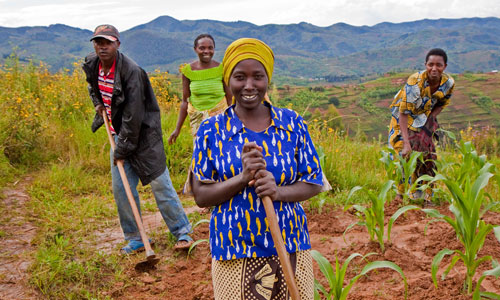

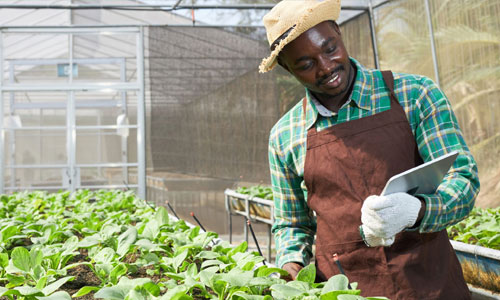
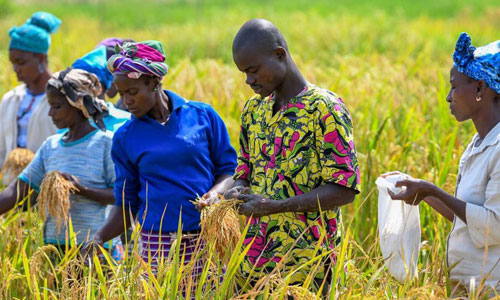
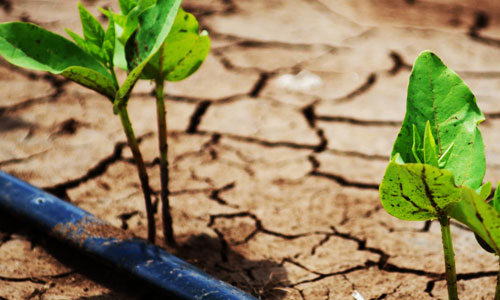
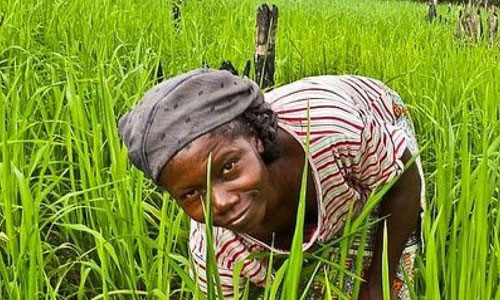
Strengthening Agricultural Resilience in Ghana: A USAID and Palladium Collaboration
"Agricultural insurance is not just a safety net for farmers; it is a catalyst for sustainable agricultural development and financial inclusion." – Russell LEITH, Thematic Team Leader, Insurance Finance and Risk Group
Challenge
In 2017, USAID, through the Financing Ghanaian Agriculture Project (FinGAP), in partnership with Palladium, aimed to address the persistent challenges within Ghana's agricultural sector. Agriculture in Ghana, contributing significantly to the GDP and employing over half of the labor force, is prone to multiple climatic and biological risks, including droughts, floods, pests, and diseases. Despite the critical role of agriculture, the lack of effective insurance mechanisms exposed farmers to severe financial vulnerabilities.
The existing agricultural insurance landscape was fragmented, primarily dominated by the Ghana Agriculture Insurance Pool (GAIP), which struggled with limited product diversity and outreach. Furthermore, the absence of robust legal frameworks and the lack of integration of insurance with other agricultural support systems hindered the efficacy of existing insurance solutions. The high cost of insurance, limited awareness among farmers, and inadequate capacity within insurance providers compounded these challenges, leading to a system that failed to adequately protect farmers against agricultural risks.
Strategy
To address these challenges, USAID and Palladium commissioned a diagnostic assessment led by the thematic team leader from the Insurance Finance and Risk Group. The assessment involved a comprehensive review of existing agricultural insurance products, services, and the legal and regulatory frameworks governing the insurance sector in Ghana.
The process began with an in-depth analysis of the demand and supply dynamics of agricultural insurance. Stakeholder engagement was pivotal, incorporating insights from farmers, insurers, regulators, and agribusinesses. The analysis revealed gaps in insurance coverage, particularly in regions prone to climatic extremes, and identified systemic inefficiencies in the implementation of agricultural insurance products.
Subsequently, the team proposed innovative product options designed to increase accessibility and affordability. Recommendations included the introduction of bundled insurance solutions that combined crop insurance with agricultural inputs like seeds and fertilizers, thereby aligning insurance products with farmers’ holistic needs. Additionally, the team emphasized the integration of weather data for precise risk assessment and product customization, enhancing the relevance and effectiveness of insurance offerings.